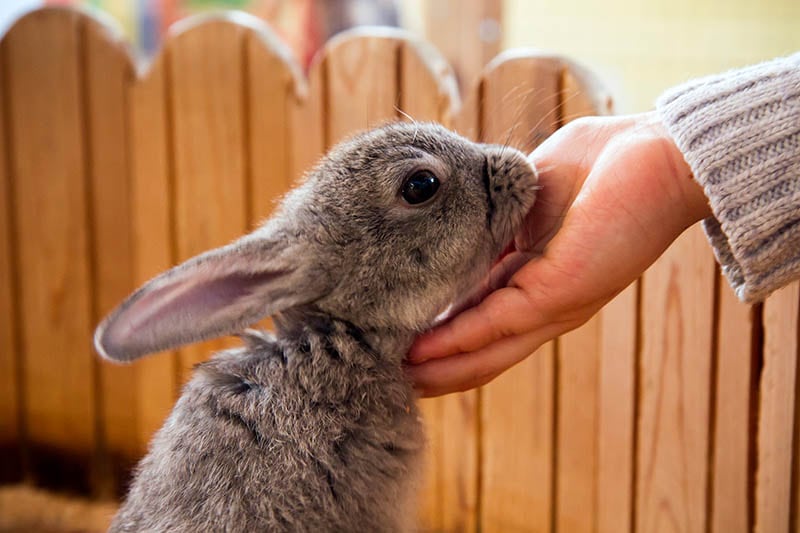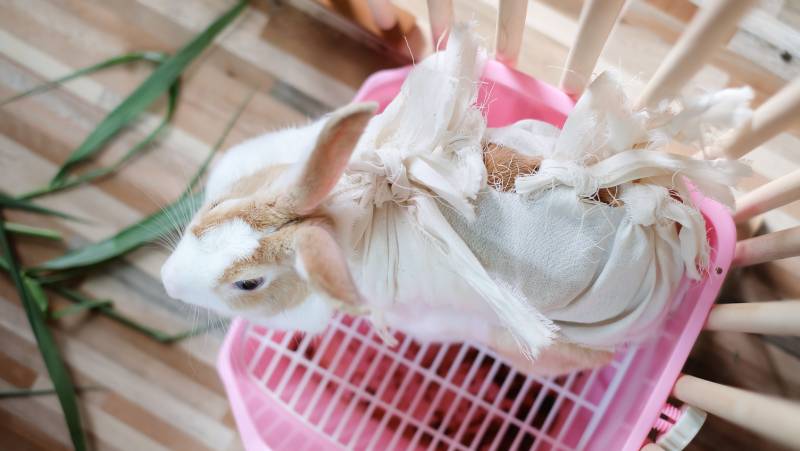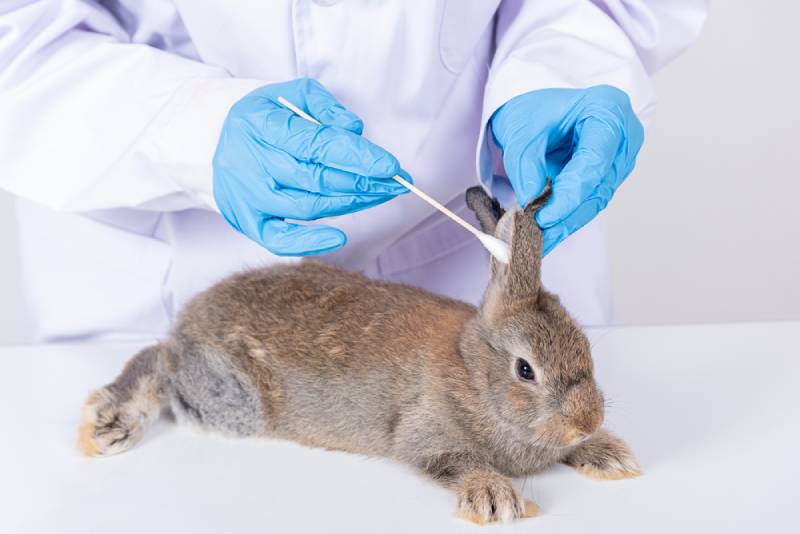
Being a pet owner comes with a lot of responsibilities, and sometimes you have to make difficult decisions. Despite our unconditional love, there may come a time when we must surrender our beloved pet to a new home, which can be disheartening. If you are a rabbit owner who finds yourself in this predicament, we are here to help. In this article, we’ll guide you through the important steps for finding your rabbit a new home.

Before You Start Looking for a New Home
Before you find a new home for your rabbit, think more about your decision. If it is due to bad behavior causing a problem, it’s important to note that many unwanted behaviors can be reduced or eliminated. If your rabbit is digging or chewing, it is usually because they are bored and are trying to entertain themselves, so you could try directing this behavior to toys instead of your furniture.
Many people say that they don’t have enough time to spend with their rabbits, but if this is the case for you, you can incorporate your chores accordingly. For example, while you are paying bills, cooking, or even watching tv, your rabbit will be content just having you nearby, especially if they have some toys to be entertained.
Spaying or neutering your rabbit can also help reduce behaviors such as biting, growling, circling, and marking territory. Rabbits can also be litter trained and make wonderful companions.

The 10 Steps For Finding a New Home For a Rabbit
1. Network with Friends and Co-Workers
You may have a friend that can take care of your pet, which is the best possible outcome as you know they’re someone you can trust, you know their living conditions, and you can still see your rabbit on occasion when you visit. However, if none of your close friends or co-workers can adopt your rabbit, they may know someone who can, which can also be a great relief.

3. Take a Good Photo of Your Rabbit
If you are at the point where you need to go further than your immediate circle of friends, you need to advertise. Having a good photo of your rabbit can help increase the chances that someone may make an immediate connection or be drawn to your rabbit.
Furthermore, if someone wants to adopt a rabbit, they will most likely want to see a photo. You can take a picture while your rabbit is playing, eating, sleeping, or curled up in your lap.
3. Use of Social Media
Social media is a great platform to network and make connections. You can reach many people through social media and it is free. You can join groups for rabbit lovers or ask all your social media friends to share your advert for maximum coverage.
While social media is a great tool for networking with other rabbit lovers, it can also be risky and you can easily be scammed. It is important to ensure the person contacting you is real and that their intentions are pure before your hand over your pet rabbit.
4. Leave Fliers in Public Spaces
Printing out fliers is the old, classic way of doing things, but it is still very effective. In some ways, it can also be more personal. You can print out a flier with a great picture of your rabbit, explaining your circumstances, and you can place it in several public areas with a lot of foot traffic, such as schools and shopping centers. Fliers are also great since they require the interested person to phone you. You can get a feel for the person and arrange to meet them to ensure they’re right for your rabbit.

5. Ask for a Small Adoption Fee
While making money out of rehoming your rabbit is not a priority, asking for a small fee may help filter out the not-so-serious time wasters. If someone is willing to pay a fee, you know they are serious. The fee shouldn’t be too low as it may seem that you are desperate and may imply something is wrong with your rabbit, and asking for a high fee may reduce the likelihood of finding someone to adopt your rabbit. We recommend an adoption fee of $50–$80.
6. Have Your Rabbit Examined
Ensuring that your rabbit is in top health is another way to get the attention of people looking to adopt a pet. You can ask your vet for a statement to say that your rabbit does not have any health issues, which is a lot more enticing than just taking your word for it. This will also ease the minds and fears of people looking to adopt and can really increase your chances of finding your rabbit a new home.
7. Get Your Rabbit Spayed/ Neutered
Having your rabbit spayed or neutered before finding them a new home will significantly increase the chances of them being adopted. It is beneficial for the potential new owner and has many benefits for your rabbit. A spayed or neutered rabbit is generally calmer and easier to potty train, improving the chances of being adopted. It also means there is no chance of reproducing, which is a big pro for someone looking to adopt.

8. Remember to Talk About How Great Your Rabbit Is In Your Ad
This is the time to showcase your rabbit’s great personality. Don’t leave out any details, and be sure to highlight all the positive traits. When placing your ad, remember to be mindful of your spelling and grammar; it really makes a difference. List your rabbit’s strong points, such as how they are “neutered,” “potty trained,” “affectionate,” and “gentle.”
9. Never Release Your Rabbit Into the Wild
Pet rabbits don’t have the skills needed for survival in the wild, and releasing them into the wild is a cruel way to lead your rabbit to their demise. Your rabbit will be an easy target for predators, and even if predators aren’t an issue, they will have a hard time staying warm and finding food.
10. Ensure Your Rabbit is Going to A Good Home
When a potential new owner shows interest in your bunny, it’s your responsibility to ensure that your rabbit is going to a good home and is not someone’s pet reptile’s next meal. Here are a few tips for ensuring your rabbit is going to a good home:


Conclusion
It can be so disheartening to find a new home for your rabbit, but it doesn’t need to be painful. By following these important steps, you can find a willing new owner in a short amount of time. Even though your rabbit is no longer your responsibility, it is your responsibility to ensure they go to a happy new home where they will be loved and cared for.
Featured Image Credit: Wanwajee Weeraphukdee, Shutterstock









